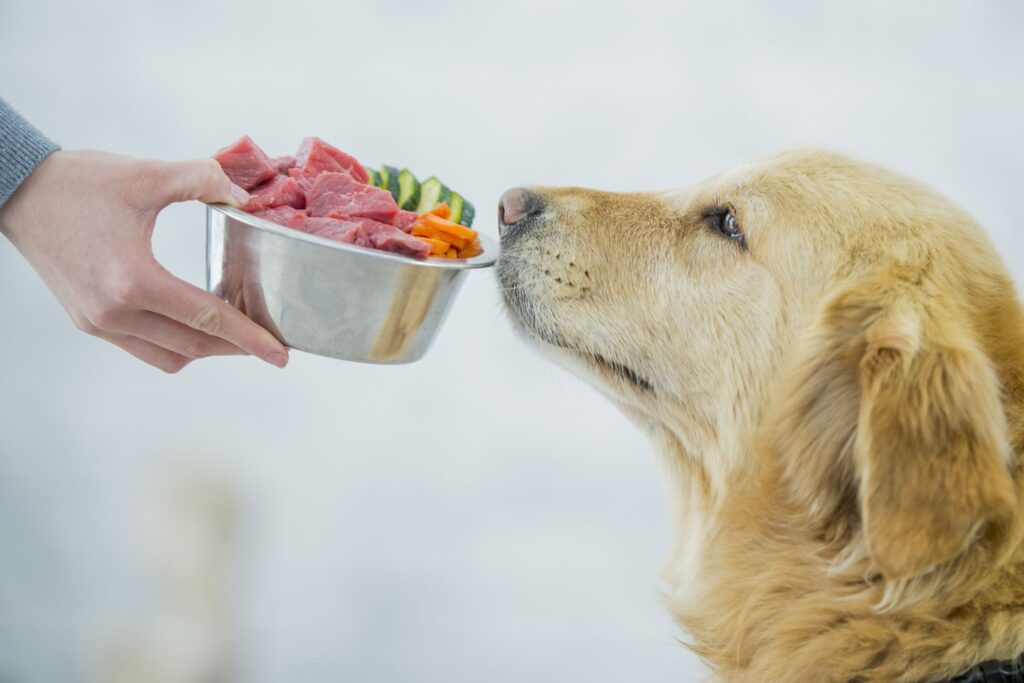In the endless pursuit of youth and vitality, wouldn’t it be wonderful if we could impart a bit of that ‘forever young’ magic onto our small furry friends? This post unveils some effective strategies to keep your small dog feeling like a puppy throughout its lifetime. We all cherish the energetic and playful puppy years, filled with curiosity and a zest for life. However, as dogs age, their vigor can lessen, and health complications may arise. This doesn’t have to be the case! With appropriate care, nutrition, and preventive measures, we can greatly enhance the quality and longevity of their lives. Our focus will be on practical tips to keep your small dog not only physically healthy but also mentally sharp and active. We will delve into the importance of a balanced diet, regular exercise, consistent vet check-ups, mental stimulation, and social interaction. Implementing these practices can help in maintaining your pet’s youthful spirit and overall well-being. Furthermore, we will discuss the role of regular grooming and dental care in keeping your pet feeling sprightly. Also, tips to manage common health issues prevalent in small dog breeds will be discussed in detail. The aim is to equip you with all the necessary knowledge to keep your pet healthy, happy, and youthful for as long as possible. So, if you’re a proud parent of a small dog and you’re eager to learn how to keep them feeling like a puppy forever, this post is for you! This comprehensive guide provides a roadmap to a more vibrant and prolonged life for your beloved canine companion. Let’s embark on this exciting journey of preserving youthfulness in our cherished pets. 🐾
The Role of Hydration in Longevity
While food is often the focus when discussing nutrition, water is equally vital. Hydration supports all of your dog’s bodily functions, including digestion, circulation, and temperature regulation. Dehydration can lead to fatigue, kidney issues, and reduced appetite.
To encourage your small dog to drink enough water, ensure fresh, clean water is always available. Some dogs prefer moving water, so consider using a pet water fountain. You can also increase fluid intake by incorporating moisture-rich foods like wet dog food or low-sodium bone broth into their meals. Monitor their water consumption, especially during hot weather or after increased activity.
Dental Health and Its Impact on Overall Wellness
Small breeds are particularly prone to dental problems. Tartar buildup, gingivitis, and periodontal disease are common issues that can lead to systemic infections affecting the heart, kidneys, and liver if left untreated.
Daily brushing with dog-safe toothpaste is one of the best preventive measures. Dental chews, water additives, and regular veterinary cleanings also support oral health. Check your dog’s mouth regularly for signs of dental trouble such as bad breath, bleeding gums, or difficulty eating. Maintaining oral hygiene not only prevents discomfort but can also add years to your dog’s life.
Managing Stress for a Happier Life
Chronic stress can negatively impact your dog’s health and accelerate aging. Small dogs are often more sensitive to environmental changes, loud noises, or separation anxiety.
Create a calm, predictable environment with consistent routines for feeding, walking, and bedtime. Safe spaces like a cozy crate or quiet room can provide security during stressful situations. Natural stress-relief aids, such as pheromone diffusers, calming treats, and anxiety vests, may also help.
If anxiety persists, consult your veterinarian about behavior training or professional intervention to address the root causes.

Socialization and Emotional Well-being
Just like humans, dogs are social animals. Regular social interaction can keep them mentally sharp and emotionally balanced. For small dogs, controlled exposure to other dogs, people, and new environments is key to preventing behavioral issues like fear or aggression.
Arrange playdates with other friendly dogs, visit pet-friendly cafés, or attend training classes that promote socialization. These experiences build confidence and reduce boredom, which is often a source of behavioral problems in pets.
The Importance of Mental Enrichment
Mental stimulation is crucial in preventing cognitive decline as dogs age. Keeping their brains active can slow memory loss and improve their ability to learn and adapt.
Rotate toys to keep things interesting and offer puzzle feeders that challenge them to solve problems for treats. Teach new tricks or reinforce old ones with positive reinforcement. Even simple tasks like finding hidden treats around the house can offer both exercise and mental engagement.
Regular Grooming for Physical and Emotional Health
Grooming is more than just keeping your dog clean and tidy—it is also a bonding experience that can alert you to changes in their health. During grooming, you may discover lumps, skin irritations, or parasites that would otherwise go unnoticed.
Small dogs often require more frequent grooming, especially breeds with longer coats like Shih Tzus or Maltese. Use gentle, dog-specific products and maintain a regular schedule for bathing, brushing, and nail trimming. Ear cleaning and checking between paw pads are also essential.
Adjusting Care with Age
As your small dog enters their senior years, their needs will change. Older dogs may require less intense exercise, softer bedding to ease joint pressure, and a modified diet to support aging organs.
Pay attention to signs of aging such as decreased energy, stiffness, increased thirst, or changes in appetite. Early recognition and veterinary guidance can make these transitions smoother and more comfortable.
Supplements like glucosamine, omega-3 fatty acids, and antioxidants can support joint health, brain function, and overall vitality. Always consult your vet before introducing new supplements to ensure they suit your dog’s health status.
Monitoring Weight and Body Condition
Obesity is a silent health risk that can shorten your dog’s lifespan. Keeping your dog at an ideal weight helps prevent diabetes, arthritis, and cardiovascular disease.
Use body condition scoring to assess your dog’s weight. Ideally, you should be able to feel their ribs without pressing hard and see a waistline when viewed from above. Use a digital scale to weigh your dog regularly, and adjust food portions as needed based on their activity level and age.
Treats should make up no more than 10% of their daily caloric intake. Opt for low-calorie treats and remember to count them in the total food allowance.
Consistency Is Key
The secret to maintaining a youthful and vibrant small dog lies in consistency. Establish daily routines that include feeding, exercise, playtime, rest, and affection. Dogs thrive on structure, and predictable routines reduce stress and create a sense of security.
Make wellness checks, both at home and with your vet, part of your regular routine. Keep detailed records of vaccinations, medications, weight changes, and behavioral observations to track your dog’s overall health trends over time.
Building a Lifetime Bond
At the heart of every care strategy is the bond you share with your dog. Spending quality time together, whether through cuddles, play, or shared adventures, not only enhances their well-being but also enriches your own life.
Dogs are incredibly intuitive and responsive to the emotions and energy of their human companions. A happy, emotionally healthy owner often raises a similarly well-adjusted pet. Your attention, affection, and involvement are the most powerful tools you have to keep your dog forever young.hysical stimulation but also cater to your dog’s natural instincts and behaviors, making them happier and more fulfilled.

Regular Vet Check-ups
No matter how well you take care of your small dog at home, regular vet check-ups are non-negotiable. Regular veterinary visits can help detect any potential health issues early before they become serious problems. This proactive approach can significantly extend your dog’s life expectancy and improve their quality of life.
Preventive Care
A significant aspect of veterinary visits is preventive care, which includes vaccinations, heartworm testing and prevention, flea and tick prevention, and dental care. Regular dental check-ups are especially crucial for small dogs as they are more prone to dental diseases than larger breeds.
Quality Rest and Sleep
Just like humans, dogs need quality rest and sleep to maintain their health and vitality. Sleep plays a significant role in your dog’s immune function, memory, and learning. Therefore, ensuring your small dog gets enough sleep is crucial for their well-being.
The Importance of Comfort
Creating a comfortable and relaxing environment for your dog to sleep is essential. Make sure they have a cozy bed that supports their body and a quiet place to rest without disturbances. Reducing stress and providing a calm atmosphere will help improve the quality of their sleep.
Mental Stimulation
Lastly, mental stimulation is as important as physical exercise for your dog’s overall health. It’s necessary to keep their mind sharp and engaged to prevent boredom and destructive behavior.
Interactive Toys and Training
Interactive toys and puzzles can provide great mental stimulation for your small dog. Training exercises, such as learning new tricks or commands, can also keep your dog mentally stimulated while strengthening your bond with them. In conclusion, remember that every dog is unique, and what works best for one may not work for another. Always take your dog’s individual needs into account and consult with a vet for personalized advice. These tips are a guideline to help you on your journey to keep your small dog feeling like a puppy forever.
Remember
- Provide a nutritious diet
- Ensure regular exercise
- Regular vet check-ups
- Quality rest and sleep
- Mental stimulation
Creating a Consistent Daily Routine
Small dogs thrive on routine. Establishing a consistent daily schedule for feeding, exercise, playtime, and rest can make a big difference in both their behavior and overall well-being. Predictability provides emotional security, which reduces stress and contributes to long-term health. This is especially important for small breeds, who can be more sensitive to changes in their environment.
Daily routines should begin with a morning walk or play session, followed by a structured feeding time. Incorporate short activities throughout the day to prevent boredom, and set a regular bedtime to promote restful sleep. If your routine changes often, try to maintain the same mealtime and exercise periods to provide some structure within the variability.
Strengthening the Human-Dog Bond
Keeping your dog young in spirit involves more than just physical care. The emotional bond between you and your dog plays a vital role in their happiness. Spending quality time with your pet each day strengthens trust and builds a lasting connection. Engaging in activities like cuddling, playing, grooming, or even talking to your dog creates a sense of security that supports emotional balance.
Emotional well-being can affect physical health, too. Dogs who feel loved and included are less likely to show signs of anxiety, which can manifest as digestive issues, behavioral problems, or disrupted sleep patterns. Strong companionship also encourages your dog to stay active, curious, and interactive—key traits of a youthful pet.
Incorporating Variety in Play and Training
Dogs are intelligent creatures who enjoy learning new things. Adding variety to play sessions and training routines keeps their minds active and their bodies moving. Even older dogs benefit from continued learning, which helps delay cognitive decline and maintains alertness.
Teach your dog new tricks using positive reinforcement methods, and rotate toys weekly to maintain their interest. You can also introduce scent games, hide-and-seek, or mini obstacle courses to encourage exploration. These playful mental challenges contribute to a well-rounded lifestyle and help preserve your dog’s puppy-like enthusiasm.
Prioritizing Dental and Grooming Care
Dental care is often overlooked but is crucial for small breed dogs, who are more prone to periodontal disease. Gum disease not only causes tooth loss and pain but can also lead to systemic infections that affect the heart, liver, and kidneys. Brushing your dog’s teeth several times a week and scheduling regular professional cleanings are key preventive measures.
Grooming also plays a role in health and youthfulness. Keeping your dog’s coat clean and brushed prevents matting, which can hide skin issues or cause discomfort. Nail trimming, ear cleaning, and eye care should be part of the routine. A well-groomed dog not only looks youthful but also feels better physically and emotionally.
Managing Stress and Environmental Enrichment
A peaceful environment is essential for long-term health. Chronic stress can weaken your dog’s immune system and accelerate aging. Identify stress triggers in your dog’s life—such as loud noises, crowded spaces, or long periods of isolation—and try to minimize them. Provide a quiet, safe space where your dog can retreat and feel secure.
Environmental enrichment is another way to keep your dog mentally and emotionally stimulated. This includes rotating toys, offering puzzle feeders, and changing walking routes to expose your pet to new sights and smells. These small changes encourage curiosity and help your dog remain engaged with their surroundings.



